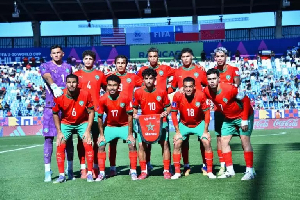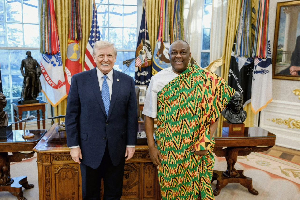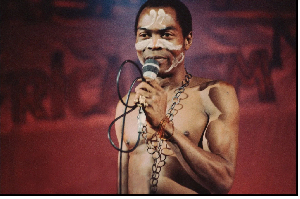The 1992 Constitution of Ghana is often praised for its role in stabilizing the country’s democracy. However, a closer examination reveals significant flaws in applying the separation of powers doctrine.
While the Constitution outlines distinct roles for the Executive, Legislature, and Judiciary, its provisions allow for excessive fusion between the branches of government, undermining the very principle it seeks to uphold.
One of the most problematic aspects of this fusion is the appointment of Members of Parliament as Ministers. Article 78(1) of the Constitution states that “the President shall appoint Ministers of State with the prior approval of Parliament, except that the majority of Ministers of State shall be appointed from among Members of Parliament.”
This provision weakens the independence of Parliament, as MPs who also serve as Ministers often prioritize their executive responsibilities over their legislative duties. Instead of acting as a check on the Executive, Parliament becomes an extension of the ruling government, limiting its ability to hold the Executive accountable.
Another major concern is the merger of the Office of the Attorney General with the Ministry of Justice. Article 88 designates the Attorney General as both the principal legal adviser to the government and the minister responsible for justice.
This dual role creates a conflict of interest, as the Attorney General is expected to provide independent legal opinions while also serving as a political appointee under the Executive.
The potential for executive influence over legal decisions raises questions about the fairness of prosecutions and the ability of the justice system to function independently. Detaching the Office of the Attorney General from the Ministry of Justice would enhance prosecutorial independence and restore public confidence in the legal system.
Beyond these specific issues, Ghana’s constitutional framework grants excessive appointment powers to the President, further weakening institutional independence. Article 144(1) grants the President the authority to appoint the Chief Justice, subject to parliamentary approval, while Article 70(1) empowers the President to appoint the heads of key oversight institutions, including the Electoral Commission, the Commission on Human Rights and Administrative Justice, and the Auditor-General’s office.
The Executive’s influence over these institutions creates concerns about their impartiality and their ability to function without political interference.
Article 181(5) further consolidates executive control by granting the government extensive authority over international business or economic transactions. With limited parliamentary oversight, this provision raises concerns about transparency and accountability in major financial agreements.
The Legislature, which is meant to provide a check on the Executive, often lacks the independence and influence necessary to effectively scrutinize government actions, largely due to the practice of appointing MPs as ministers.
To uphold the principles of democracy, Ghana must reconsider aspects of its constitutional framework that promote excessive executive dominance. Limiting or prohibiting the appointment of MPs as Ministers would strengthen parliamentary independence and ensure that the Legislature serves as an effective check on executive power.
Separating the Office of the Attorney General from the Ministry of Justice would eliminate conflicts of interest and guarantee independent legal advice and prosecution. Strengthening parliamentary oversight and reviewing presidential appointment powers would ensure that key institutions operate with greater autonomy and accountability.
If Ghana is to strengthen its democracy and governance systems, these reforms must be taken seriously. The upcoming constitutional review process presents a crucial opportunity to address these structural flaws and establish a governance system that fosters true separation of powers, accountability, and the rule of law.
Policymakers, civil society, and legal experts must seize this opportunity to push for necessary changes that will safeguard the integrity of Ghana’s democratic institutions.
Opinions of Wednesday, 26 February 2025
Columnist: Mileba Godwin Kwame
Untangling the Knotted Governance: Rethinking Ghana’s separation of powers
Opinions














